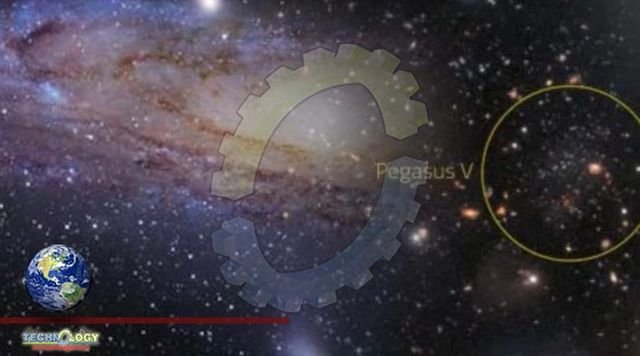An amateur astronomer’s keen eyes led to the discovery of an Unusual Fossil Galaxy on the outskirts of the Andromeda Galaxy.

A unique ultra-faint dwarf galaxy has been discovered on the outer fringes of the Andromeda Galaxy thanks to the discerning eyes of an amateur astronomer examining archival data processed by NSF’s NOIRLab’s Community Science and Data Center. The dwarf Pegasus V was revealed to contain very few heavier elements and is likely to be a fossil of the first galaxies in follow-up observations by professional astronomers using the International Gemini Observatory, a Program of NSF’s NOIRLab.
An unusual ultra-faint dwarf galaxy has been discovered on the edge of the Andromeda Galaxy with the help of several facilities of NSF’s NOIRLab. Called Pegasus V, the galaxy was first detected as part of a systematic search for Andromeda dwarfs coordinated by David Martinez-Delgado from the Instituto de Astrofísica de Andalucía, Spain, when amateur astronomer Giuseppe Donatiello discovered a curious ‘smudge’ in data in a DESI Legacy Imaging Surveys image.[1] The image was taken with the US Department of Energy-fabricated Dark Energy Camera on the Víctor M. Blanco 4-meter Telescope at Cerro Tololo Inter-American Observatory (CTIO). The data were processed through the Community Pipeline which is operated by NOIRLab’s Community Science and Data Center (CSDC).
Faint stars in Pegasus V were revealed in follow-up deeper observations by astronomers using the larger, 8.1-meter Gemini North telescope with the GMOS instrument, confirming that it is an ultra-faint dwarf on the outskirts of the Andromeda Galaxy. Gemini North in Hawai‘i is one-half of the International Gemini Observatory. The observations with Gemini showed that the galaxy appears to be extremely deficient in heavier elements compared to similar dwarf galaxies, meaning that it is very old and likely to be a fossil of the first galaxies in the Universe.
“We have found an extremely faint galaxy whose stars formed very early in the history of the Universe,” commented Michelle Collins, an astronomer at the University of Surrey, UK and lead author of the paper announcing this discovery. “This discovery marks the first time a galaxy this faint has been found around the Andromeda Galaxy using an astronomical survey that wasn’t specifically designed for the task.”
Source: This news is originally published by scitechdaily